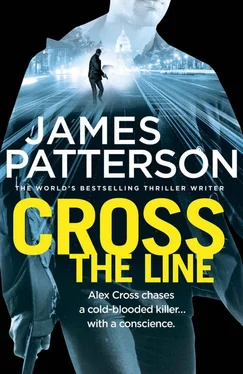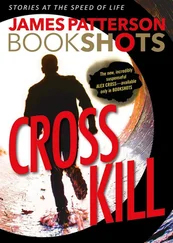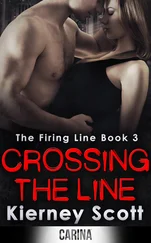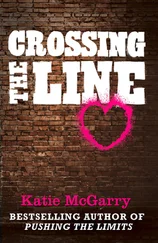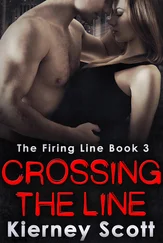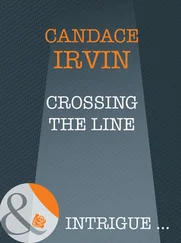“These guys are pros,” Sampson said. “They leave no trace.”
“They’re probably using documented aliases and leading secret lives.”
“Paranoid way to live.”
“Unless you have someone hunting you.”
“Point taken, but I’m feeling like we’re dead in the water until Mahoney comes up with something.”
My cell phone rang. A number I didn’t recognize.
“Alex Cross,” I said.
On the other end of the line, a woman blubbered, “Who killed Nick? Were you there?”
For a moment I was confused, and then I remembered. “Dolores?”
She stopped crying and sniffed. “I loved him. I can’t... I can’t believe he’s gone. Were you there, Dr. Cross? Did he suffer? What do you think happened? Was he really part of this vigilante group?”
I was feeling pinched and unsure how to respond, but then I said, “What’s your security clearance, Dolores?”
There was a strong tremor in her voice as she said, “I helped you, Dr. Cross. Now you help me. That’s how it works in this town. I need to know.”
I thought about Mahoney’s investigative strategy and the need to limit the number of people who knew the truth and weighed that against the obvious grief and pain Dolores was suffering.
“He’s not dead.”
There was a long moment before she said in a whisper, “What?”
“You heard me. Take heart. Wait it out. There are reasons for this.”
Dolores choked, and then laughed, sniffed, and laughed again, and I imagined her wiping her tears away with her sleeve.
“I’m sure,” she said. “Oh God, you don’t know how... I was up all night after I heard. I have never felt such regret, Dr. Cross. For what could have been.”
“I think you’ll get the chance to tell him that yourself before long,” I said.
“Thank you,” she said, sounding stuffy but ecstatic. “From the bottom of my heart, thank you. And if there’s anything else I can do for you, just ask.”
“There is, actually. Tell me what you know about Lester Hobbes and Charles Fender.”
The line was quiet for several moments before Dolores said, “Interesting pair. Can I ask where this is going?”
“Not today,” I said. “And please don’t start poking around in any files with security clearances attached to those two. Just give me what you know.”
“Fair enough,” Dolores said. “I’ll give you only what’s in my files.”
“You’ve got files on Hobbes and Fender?”
“I’ve got files on almost everyone in this business.”
“Can I ask how?”
“Only if you wish to pay me for my services.”
I smiled. “So, what, you’re like an agent for mercenaries?”
“A broker is closer to it,” Dolores said, all business now. “I’m the person you go to when you want to recruit a talented warrior, like Fender, or an assassin, like Hobbes.”
“That’s what Hobbes does?”
“Quite well. Very clean operator. Only takes out targets who deserve it.”
I wondered at Dolores’s sense of morality and justice for a moment but then pushed those concerns aside.
“Can you tell me where to find Hobbes and Fender?”
She laughed. “You want to talk to them?”
“Interrogate them is more like it.”
She laughed again. “Good luck with that.”
“You won’t help me find them?”
“I don’t know how to find them. The only time we communicate is when I have an offer for their services, and that’s done by secure e-mail. Honestly, we’ve never even met in person.”
I thought about that. “Could you make them an offer on our behalf?”
“Oh, I don’t know,” she said. “There are certain ethical standards in my line of work.”
“Your work representing mercenaries.”
“That’s right.”
“Next thing you’ll tell me is there’s an association of mercenary agents here in town.”
“There’s talk.”
“Remember how this conversation began?” I said.
After a pause, Dolores said, “I do, and I’m grateful for the peace of mind.”
“And I imagine you want to prevent further bloodshed?”
“That too.”
“Then you’ll help us find Hobbes and Fender?”
A longer silence followed before she said, “I’ll draft a proposal for you and see if they bite.”
“Make it a very lucrative offer,” I said. “Then they’ll definitely bite.”
Out in the mouth of Mobjack Bay, close to where it meets the greater Chesapeake, John Brown’s fishing boat bobbed at anchor a mile north of a fifty-acre gated and guarded compound on a point.
Cass was aboard. So were Hobbes and Fender, who were holding fishing poles, jigging for bottom fish, and studying the compound.
“If we do it right, this will be a total surprise,” Brown said, handing binoculars to Fender. “We’ll be in and out in twenty minutes, tops.”
“That’s the plan, anyway,” Hobbes said, raising and lowering his rod.
That annoyed Brown. “What does that mean?”
“It means shit happens,” Hobbes said. “And sometimes you have to ad-lib. I mean, who knows, a big goddamned storm comes up and we’re blowing off whitecaps on our way in, we might want to ad-lib and take a different approach. That’s all I’m saying.”
Brown felt on edge, and he didn’t know why. His arm throbbed less, but it was waking him up at night. And of course there had to be contingencies in place, but with a situation like this, he wanted specific actions to move like clockwork, the team going in and out like phantoms.
“Those are huge cigarette boats,” Cass said, glued to her binoculars.
Brown shielded his eyes to look toward the big lifts that held the three boats above the water. “It’s a perfect location to take advantage of the eastern shipping lanes. Less than eight miles from the Atlantic. Boats that fast can get twenty miles out in minutes, offload cargo in the middle of the night, and be back quick.”
“There’s another guard,” said Fender, who was also glued to the binoculars. “Three so far. Looks like they’re on constant patrol.”
“And they’ll beef up security for the meeting,” Brown said. “But we are a superior fighting force.”
“Damned straight on that,” Fender said. “If this goes down as planned, they’ll never know what hit them.”
Fender had no sooner said that than his cell phone pinged. Hobbes’s phone buzzed a moment later.
Fender set his binoculars down to check his phone. Hobbes held his fishing pole one-handed to look at his message.
Brown picked up Fender’s binoculars and peered through them at the compound. He’d studied the aerial view of it in the drone footage, but getting eyeballs on the target still had benefits, especially in an amphibious attack.
He lowered the glasses, saw Fender and Hobbes still at their phones.
“Heads up,” Brown said. “Eyes on where we’re going.”
Hobbes looked up. “Sorry — short-term high-dollar employment offer.”
“Same,” Fender said. “Says a team of six total needed.”
Brown grew angry. “You’re needed here. Don’t you believe in what we’re doing?”
“I believe in what we’re doing,” Hobbes said. “But sometimes a man’s gotta eat before he makes the world a better place, which means sometimes he’s got to earn before he makes the world a better place.”
The skin below Brown’s left eye twitched. “Where I come from, desertion in a time of war is a killing offense, Hobbes.”
“Who’s deserting?” Fender said. “If we get the gig, we won’t be gone a month. We’ll be back. Think of it as us going on extended furlough without pay.”
Brown didn’t like it, but he said, “Get us through this phase before you go anywhere. You owe us that.”
Читать дальше
